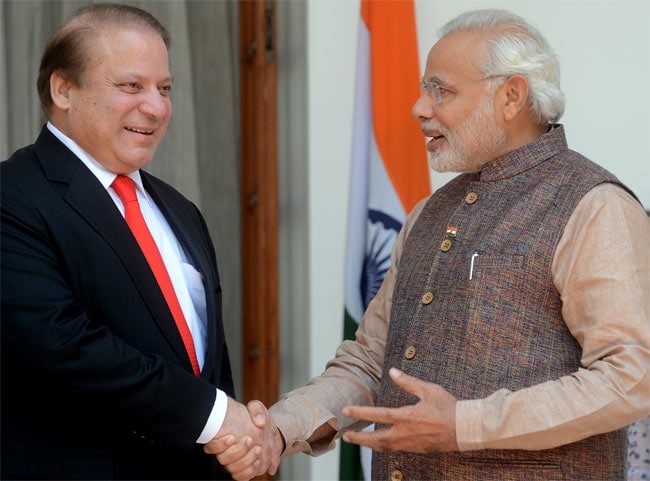
India on Monday cancelled talks with Pakistan scheduled for next week, over its envoy's engagement with Kashmiri separatists, saying Islamabad's interference in its internal affairs is "unacceptable". The day after, a separatist leader has said he will go ahead with his meeting with Pakistan High Commissioner Abdul Basit.
Here is your 10-point cheatsheet to the story:
Hurriyat leader Mirwaiz Umar Farooq has called New Delhi's decision a "knee-jerk reaction" and said he will keep his appointment with the Pakistani envoy today. (Political Reactions After India Calls Off Talks With Pakistan)
"We have been talking to the Pakistani leadership before even during (Atal Behari) Vajpayee's government. We have no problem if the Indian envoy speaks to leaders of Pakistan-Occupied Kashmir," Mr Farooq told NDTV.
Pakistan High Commissioner Basit had invited several Kashmiri separatist leaders for "consultations" ahead of the talks between the Foreign Secretaries of both countries on August 25 in Islamabad.
The government says Indian Foreign Secretary Sujatha Singh phoned the Pakistani High Commissioner to warn, "Either talk to separatists or talk to us." (Before Calling Off Pakistan Talks, a Warning Issued Over the Phone) But after the envoy went ahead and met a separatist leader Shabir Shah on Monday, India announced that the talks stand cancelled.
Pakistan has justified its invitation to separatists, calling it a "long-standing practice to facilitate the resolution of the Kashmir dispute." The country's foreign office said, "The Indian decision is a setback to efforts by our leadership to promote good neighbourly relations with India." (Read More)
The US called the development "unfortunate" and said what matters is that both the countries take steps to improve ties. (Read more...)
Last week, Prime Minister Narendra Modi visited Kargil, where India and Pakistan fought a war in 1999, and accused Pakistan of using terrorism to wage "a proxy war" in India. (Read more...)
His comments came amid new tension along the Line of Control or the de-facto border in Jammu and Kashmir. Pakistan denied the allegations and retaliated by saying India should not practice "a blame game." (Read more...)
After he swept the national election in May, PM Modi surprised many by inviting his Pakistani counterpart Nawaz Sharif and other South Asian leaders to his swearing-in ceremony. The meeting between the two premiers led to a decision for talks between their foreign secretaries.
The Opposition Congress has been charging Mr Modi with failing to react to incursions and infractions by Pakistan in Kashmir. The party says the PM, who was quick to accuse the previous government of being too soft on Pakistan, has failed to take a firm stand with Islamabad since coming to power.

